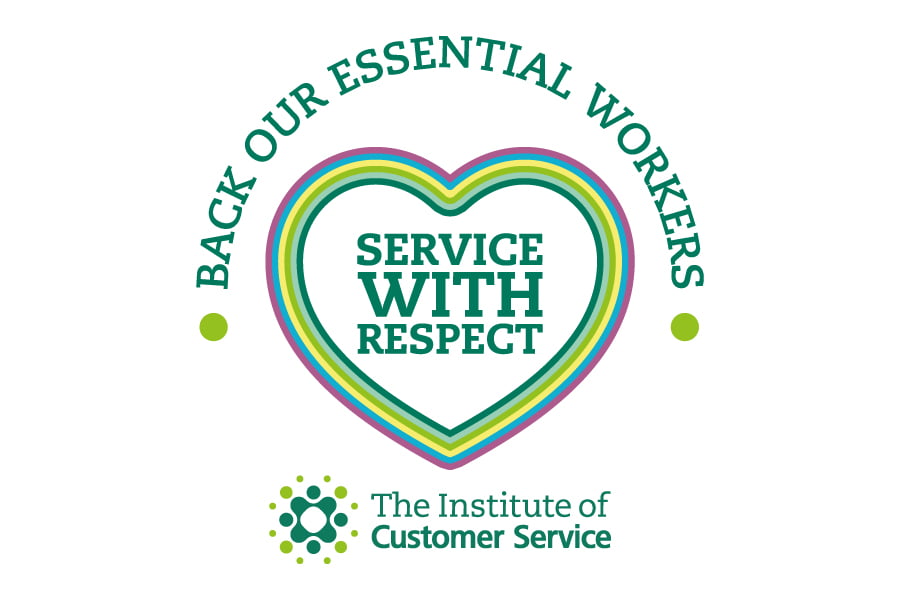By Jo Causon, CEO, The Institute of Customer Service
One of the consistent themes throughout the Covid-19 pandemic and lockdown has been a rising appreciation of the invaluable work that our essential workers perform. Health workers have obviously been in the spotlight, but there are numerous other customer facing individuals such as in essential public services, utilities, finance or retail who we have all relied on to keep the wheels turning.
So it has been particularly concerning – and indeed alarming – to uncover the fact that levels of hostility and abuse directed at many of the people providing essential service to the public have been increasing. It has led us at The Institute to launch a campaign to shine a light on the issue. We need to call it out and collectively address it.
We first heard suggestions that the issue could be on the rise during discussions at an All Party Parliamentary Group and decided to conduct some research to test it. Our survey canvassed 1,000 customer-facing employees and 1,000 members of the public – and found that more than half (56%) of essential workers have faced abuse from customers during the pandemic. Verbal hostility has been the most common form (in 73.5% of cases) but over a quarter of those who have faced hostility say it has been more aggressive such as being shouted or sworn at, or even being spat on.
Of course, it must be stressed that the great majority of the public treat customer facing staff with respect. Our survey found that two-thirds of the public recognise and value the indispensable role that staff in service positions play. But unfortunately a small but significant minority are crossing the boundary.
Our research shows that this issue spans sectors – it is by no means only a problem in retail. It was marginally most prevalent in retail (16.5%), but almost equally widespread in public services (15%) and business or professional services (13%). It could be in a face to face situation such as in a shop or at a transport terminal, or it could be on the phone to a service assistant in a call centre, or online.
Why is this happening? Perhaps in some ways it is not a surprise. From a customer perspective, we have growing levels of stress. The pandemic has placed more uncertainty on all of us. It has forced us to live our lives quite differently. Many people are struggling with unclear futures and may have increasing financial worries. Mental health issues were already becoming more pronounced, even before Covid-19.
From an employee perspective, our research found that 71% feel the requirements of their role have changed – with additional responsibility for things that may increase the risk of conflict, such as ensuring social distancing measures are adhered to (51%) and dealing with concerns from frustrated customers (30%).
We also need to remember that the stress in dealing with more challenging situations has risen for contact centre staff – and the issue can be compounded where they are working from home, in isolation, and in some cases without the support network around them of their team leader and colleagues.
Put all of this together, and you have quite a potent mix. It’s important that we address the problem as quickly as possible. We are likely to face challenging circumstances for quite some time so it is an issue that could get worse if it is not dealt with decisively.
Our campaign is calling for three things:
- A change to the law to protect customer service professionals – making abuse a standalone offence with legal redress. This should include not only shop workers but all customer service workers whether in person or on the phone/remote
- Business investment to ensure that customer facing staff receive the training and support they need to equip them to deal with the increased requirements of their role
- Customer tolerance that reflects that we are “all in it together”, with individuals considering the impact of their behaviour in the ongoing crisis
The campaign is fully supported by the APPG and has attracted ministerial letters of support. We are calling on all our members and other interested campaign to get behind it – with full details available here.
This matters from the perspective of basic human decency, but it is also important to the economy. Around 80% of GDP is generated from services, while nearly 80% of the workforce is in some form of customer-related role. We need customer service to be a profession people are proud to work in.
So, let’s come together and give our vital service staff the protections, support and backing they need and fully deserve.



